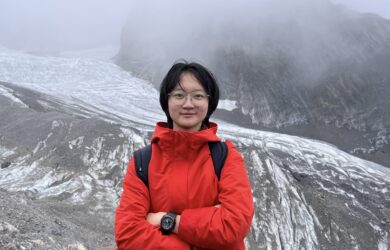Study shows Chinese boys less likely to help with housework in urban settings.
Chinese mothers’ progress to gender egalitarianism - through participation in professional work - comes at the cost of their daughters' sinking deeper into domesticity as daughters act as the “natural substitute” for their professional mothers at home.
Yang Hu
The sons of Chinese parents who share housework more equally are more likely to help around the house in traditional rural areas, according to a study by a Gates Cambridge Alumnus.
Yang Hu's study of the reproduction of gender inequality in China shows that sons are more likely to learn to do housework from their parents when there is a larger contrast between their parents' behaviour and the society around them whereas daughters only push for greater sharing of housework between the genders in more progressive, urban environments where it is more the norm.
The study, which was published in The Journal of Marriage and Family, an internationally leading journal in social sciences and family studies, also found that when parents are not able to outsource housework, for instance, to a cleaner, daughters of working mums are seen as the "natural substitute" for the housewife role. Yang says: "Chinese mothers’ progress to gender egalitarianism – through participation in professional work – comes at the cost of their daughters' sinking deeper into domesticity as daughters act as the “natural substitute” for their professional mothers at home."
Yang says that, although researchers have shown that attitudes towards housework are often linked to parental behaviour and social context respectively, there are few studies examining how parental behavior and context interact to influence children. He used data from the China Family Panel Studies 2010 to look at the difference in behaviour modelling between girls and boys aged between 10 and 15 from two-parent families in rural and urban China.
The study is based on Yang's PhD in Sociology at the University of Cambridge [2011]. He is currently a Senior Researcher in the Department of Sociology at the University of Essex.
Picture credit: W.carter (Own work) CC BY-SA 4.0, via Wikimedia Commons.












